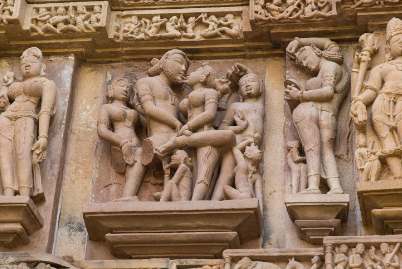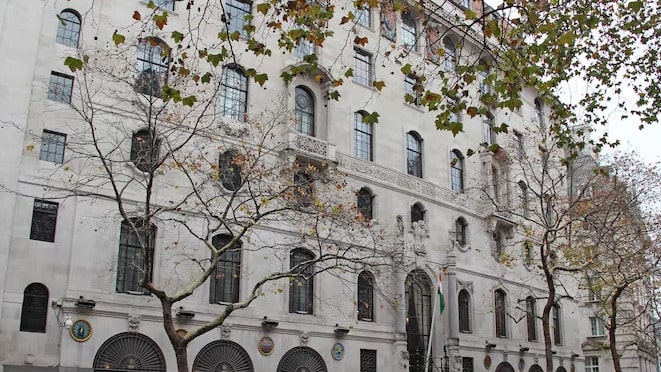[ad_1]
In his address to BJP workers in Bhopal on June 27, Prime Minister Narendra Modi underlined the party’s outreach to Muslims and the work for their welfare. He spoke of the plight of Pasmanda Muslims and Muslim women.
The BJP’s relationship with the Indian Muslim community is among the most contentious in the political history of independent India. However, of late, the emerging pattern of Muslim voting marked by the electoral success of the BJP in the politically crucial state of Uttar Pradesh (UP) suggests a turning point.
In the recently-held local bodies election, the BJP registered victories in several Muslim-dominated areas of UP for the first time. In the urban body polls, the BJP fielded Muslim candidates in 395 seats — five Nagar Palika Parishad (NPP) chairmen, 32 Nagar Panchayat (NP) chairmen, 80 corporators and 278 members for NPPs and NPs — out of which 61 candidates won with a little more than a 15 per cent strike rate. This is in sharp contrast to the results in the previous local body polls wherein only a single Muslim candidate had emerged victorious out of the 180 fielded by the party. Then, last month, the BJP-supported Muslim candidate won the assembly by-poll in Suar — a seat in which more than 70 per cent of the electorate is Muslim. Earlier, the party also won the Lok Sabha and assembly bypoll in Muslim-dominated Rampur.
Considering the BJP’s lack of success with Muslims in the past, the party considers the new trend both significant and promising, with the potential to further expand in the future.
What explains this emerging trend of Muslim voters’ affinity for the BJP? It must be noted that these electoral successes were preceded by concerted efforts by PM Modi and the BJP to accommodate Pasmanda Muslims — a socially and economically marginalised but numerically significant subgroup constituting around 85 per cent of the total Muslim population. In the last two national executive meetings of the BJP — in Delhi in January 2023 and Hyderabad in July 2022 — PM Modi called upon the party to make an outreach to the marginalised sections within minority communities. Thereafter, BJP President J P Nadda launched extensive outreach programmes in UP to engage Pasmanda Muslims by conferring samman (respect) and sneh (affection) on them. Not surprisingly, 80 per cent of the 395 candidates fielded by the party in UP local body polls and the candidate in the Suar Assembly by-poll, were Pasmandas.
As the changing political attitude of the BJP towards Pasmanda Muslims is coinciding with a new voting pattern among Muslims, significantly, there appears to be a causal relationship between the two. As this development heralds a disruption in Indian politics, it is important to analyse the logic of the BJP’s political strategy and its implications on Muslim politics.
While it is true that Islam does not envisage caste-based stratification, the lived reality is that it does exist among Indian Muslims owing to centuries-old influence from Indic religions. The caste-based divisions can be drawn along three lines — Ashrafs (upper-caste/descendants of invaders), Ajlaf (backward/converts) and Arzal (most backward/converts). The word “Pasmanda” is cumulatively used to denote the latter two categories. The Ashrafs roughly constitute around 15 per cent of the Indian Muslim population while the Pasmanda make up the remaining 85 per cent.
Frictions have emerged in the relations between the two groups at various levels. The Pasmanda identity has been opposed by Ashrafs on the grounds that it centres around caste, which is antithetical to Islam. Moreover, an anomaly has been created with Ashrafs, who are in the minority, being the dominant force in Indian Muslim politics. In fact, the Muslim leadership in mainstream political parties has been concentrated in the hands of Ashrafs. Further, the emotive political issues that resonate with Ashrafs — such as identity, personal law, and Babri Masjid — are different from issues of Pasmanda, which centre around welfare and socio-economic justice.
Hence, it is unsurprising that Ashraf-dominant political parties myopically view the Muslim community as a monolith, thereby sidelining the Pasmanda issues and representation.
The failure of the non-BJP parties to accommodate the Pasmandas and their issues has led the BJP to express willingness to accommodate this rather ostracised Muslim sub-group. Compared to others, the BJP has exhibited not only a better sociological understanding of the heterogeneity of Muslims but also political expediency in offering to fill the void around Pasmanda politics.
Moreover, it lends credence to the BJP’s claim of being an inclusive party working on PM Modi’s model of “sabka saath, sabka vikas, sabka vishwas, sabka prayas”. The party’s efforts are strengthened by the fact that Pasmanda Muslims are large-scale beneficiaries of welfare schemes of the Modi government such as Ujjwala Yojana, Mudra Yojana, etc.
The BJP’s engagement also offers an opportunity for Pasmandas to renegotiate the terms of their engagement viz-a-viz Ashrafs. Firstly, it spotlights issues of welfare and socio-economic justice over identity issues. Secondly, it bolsters the Pasmanda demand for greater democratisation and inclusivity in Muslim representation. Thirdly, it provides a political alternative for Pasmandas to rejuvenate and organise themselves.
Whatever choice the community makes will have an important bearing not only on national politics but also on its fortunes in the time to come.
The writer is former Vice-Chancellor, Aligarh Muslim University and a Member of Legislative Council (MLC) in Uttar Pradesh
[ad_2]










